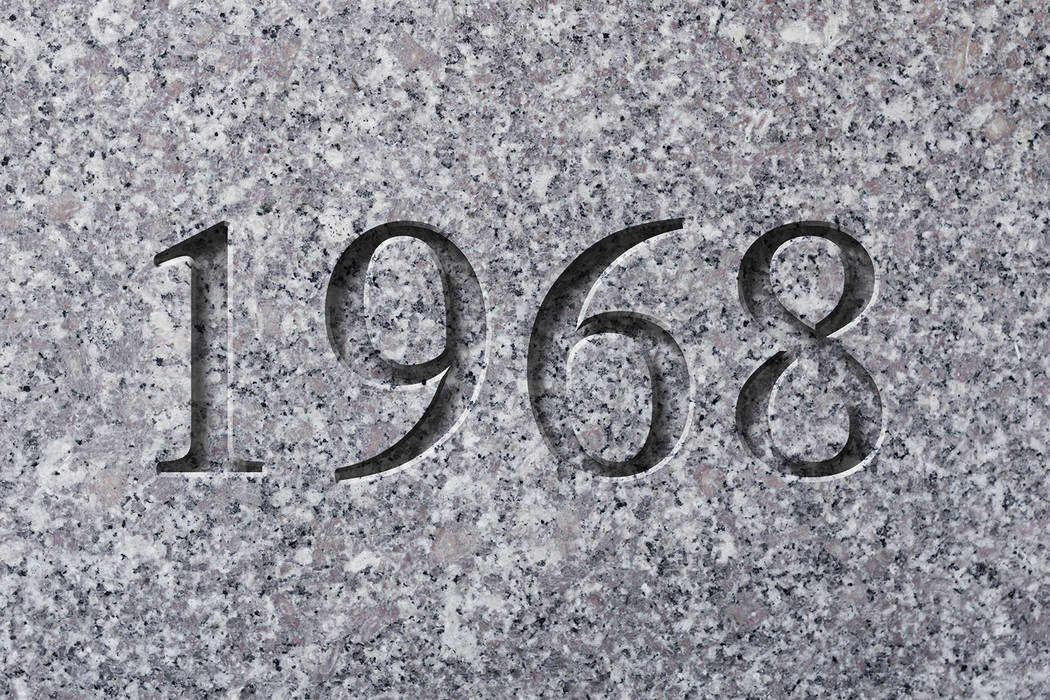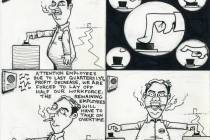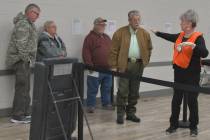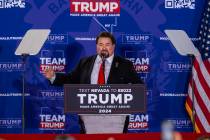Dennis Myers: When Robert Kennedy fought the Nevada mob
This week marks the 50th anniversary of the assassination of Robert Kennedy.
In the 1950s, as chief counsel for the U.S. Senate Rackets Committee, Kennedy became familiar with organized crime in the United States. He also became familiar with its funding source, casinos in the state of Nevada, mostly Las Vegas.
When he became attorney general in 1961, he invigorated a small office in the U.S. Justice Department that supposedly handled the problem of the mob. It had not been very active during the Eisenhower administration, in part because Federal Bureau of Investigation director J. Edgar Hoover claimed there was no such thing as organized crime. Kennedy ended that delusion.
Across the country, people were suffering from the activities of organized crime – drugs, fixed sports, women drawn into prostitution, muscle used to collect debts. And the bank that funded all these activities and many more was Nevada, where money in mob-run casinos was skimmed (diverted to avoid taxes) and sent across the country to pay for illegal activities.
Meanwhile, tainted money from the Teamsters Central States Pension Fund – a virtual mob front that later was taken over by the federal government – sent money into Nevada for the construction of more mob casinos.
“Wherever we found organized crime flourishing, we found local officials cooperating, and we were going after them,” wrote one of Kennedy’s prosecutors, Ronald Goldfarb. In Nevada, officialdom had winked at the mob ownerships for years and convinced locals that they had a stake in this conspiracy of silence. So when RFK decided to break the mob in Nevada, it made him very unpopular, including with the state’s Democratic governor, Grant Sawyer.
Sawyer was not cozy with the mob, but he was protective of the casino industry and angry at the overzealous tactics – including wiretapping – used by the Justice Department and a reluctant FBI.
When Sawyer learned that Kennedy in 1961 was planning a massive raid of the mob casinos in Nevada that would scoop up ledgers, records, and other evidence, he flew to D.C. and convinced President Kennedy to stop the raid. It was a monumental blunder. The state could have cooperated with the raid and dealt a major blow to one of the state’s major liabilities.
Nevertheless, as reporter Robert Sam Anson described it, RFK still decided to go after “the mob on its home ground, and that was Las Vegas. By the fall of 1963, the attorney general had begun laying plans for a massive, frontal assault on the entire state of Nevada. No weapon would be spared.”
Dallas and fate prevented that, though Kennedy’s organized crime program, which involved 30 grand jury investigations in 26 states, dealt some major blows to the mob. Nevada would not be freed from the mob taint for another 15 years or so.
Eventually, some local leaders began to realize that Kennedy had represented a missed opportunity.
Dennis Myers is an award-winning journalist who has reported on Nevada’s capital, government and politics for several decades. He has also served as Nevada’s chief deputy secretary of state.





















